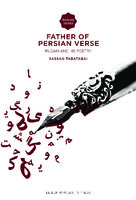Father of Persian Verse
Rudaki and his Poetry
Author(s)
Tabatabai, Sassan
Collection
Knowledge Unlatched (KU)Number
100449Language
EnglishAbstract
Abu ‘Abdollâh’ Jafar ibn Mohammad Rudaki (c. 880 CE-941 CE) was a poet to the Samanid court which ruled much of Khorâsân (northeastern Persia) from its seat in Bukhara. He is widely regarded as the father of Persian poetry, for he was the first major poet to write in New Persian language, following the Arab conquest in the seventh and eighth centuries, which established Islam as the official religion, and made Arabic the predominant literary language in Persian-speaking lands for some two centuries. This book presents Rudaki as the founder of a new poetic aesthetic, which was adopted by subsequent generations of Persian poets. Rudaki is credited with being the first to write in the rubâi form; and many of the images we first encounter in Rudaki’s lines have become staples of Persian poetry.
Keywords
Literature; Persian poetry; persia; poetry; Amu Darya; Couplet; Emir; Iranian calendars; Rudaki; WineDOI
10.24415/9789087280925ISBN
9789087282851, 9789400600164OCN
751395900Publisher
Leiden University PressPublisher website
https://www.lup.nl/Publication date and place
Leiden, 2010-01-01Series
Iranian Studies Series,Classification
Literary studies: poetry and poets


 Download
Download